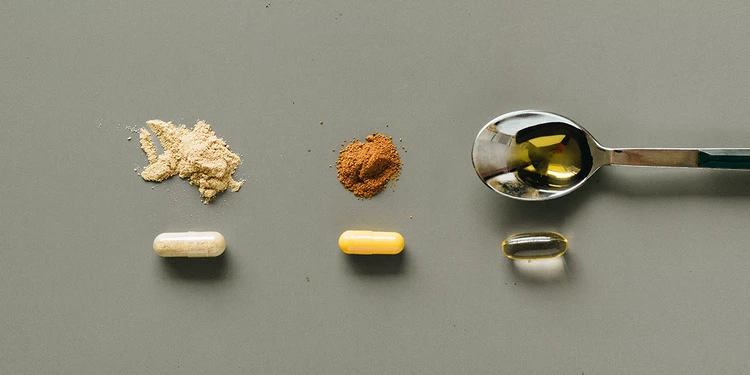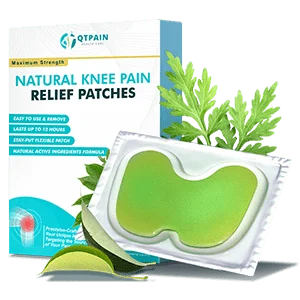Arthritis occurs when your joints become inflamed, causing pain and stiffness. There are over 100 types of arthritis, the most common being osteoarthritis and rheumatoid arthritis. The degradation of cartilage causes osteoarthritis, and this causes the joints to rub together, causing pain, inflammation, and disability. Rheumatoid arthritis is caused when the immune system attacks the healthy tissue that lines the joints. Many people take glucosamine, chondroitin, and MSM supplements to relieve pain and fight inflammation.
Key takeaways:
- Glucosamine and chondroitin are structural compounds of cartilage.
- Methyl sulfonyl methane (MSM) is a sulfur-containing compound found in unprocessed foods.
- Studies have shown mixed results when examining the role of glucosamine chondroitin and MSM supplements on hip, knee, and hand joint pain.
- Glucosamine, chondroitin, and MSM are generally safe but may interact with blood thinners and acetaminophen and interfere with blood sugar and eye pressure.
What are Glucosamine and Chondroitin?
Glucosamine and chondroitin are naturally occurring compounds that make up your cartilage, the connective tissue that cushions your joints. They’re produced naturally in the body and are often taken as supplements to treat osteoarthritis and arthritic pain.
Supplements are typically made of shellfish and bovine cartilage or are made in a laboratory. They’re believed to protect the cells that maintain cartilage structure and calm inflammation.
Glucosamine and chondroitin are also used to treat inflammatory bowel disease. Studies are underway to investigate whether they inhibit cancer cell growth.
Glucosamine
Glucosamine is an amino sugar produced naturally in the fluid around the joints and in bones. There are two types of glucosamine:
- Glucosamine sulfate
- Glucosamine hydrochloride
There isn’t enough evidence to support whether one type is better. While some studies have found that glucosamine sulfate was slightly more effective at preventing joint stiffness, others have found no difference.
Chondroitin
Chondroitin is also a naturally occurring component of cartilage. Supplements are often derived from shark or bovine cartilage, algae, or made in a laboratory. Chondroitin is believed to block enzymes that break down cartilage, acting as a protector while encouraging the production of new cartilage.
Chondroitin is often combined with glucosamine in one supplement.
What is MSM?
Methyl sulfonyl methane (MSM) is a compound found in unprocessed foods. It’s rich in sulfur, which makes it essential for building healthy bones, joints, and connective tissue. Some people find that taking MSM relieves arthritic pain, and the supplement is often taken alongside glucosamine and chondroitin.
MSM has anti-inflammatory and antioxidant properties.
Can Glucosamine, Chondroitin, and MSM help manage arthritis?
Several studies have found that glucosamine, chondroitin, and MSM help pain caused by osteoarthritis, while others found no benefit to taking the supplement.
In a 2018 study, researchers found small improvements using glucosamine and chondroitin to treat knee, hip, and hand osteoarthritis. Still, they concluded that the quality of evidence was too low. In 2016, participants who took glucosamine and chondroitin experienced worsening symptoms, and the study was stopped.
But many people with arthritic pain report that MSM supplements have reduced pain and stiffness and improved physical function. One study found that combining MSM with glucosamine and chondroitin was the most effective at decreasing pain than participants who only took glucosamine and chondroitin.
Glucosamine, chondroitin, and MSM dosage
In most studies, a typical dose of glucosamine chondroitin with MSM ranges between 500 mg and 1200 mg daily. Talk to your doctor to decide on the proper dosage for you.
The best time to take your glucosamine chondroitin MSM supplement is mealtime. While you can take supplements on an empty stomach, some people report indigestion, bloating, nausea, or heartburn. However, some people prefer taking theirs on an empty stomach, so you may experiment with what works for you.
Supplements can be taken internally as capsules or tablets or added to water in liquid or powder form. Topical treatments are combined in gels and creams, often with other anti-inflammatory ingredients like aloe vera.
Side effects of glucosamine, chondroitin, and MSM
Glucosamine, chondroitin, and MSM are generally regarded as safe with minimal side effects. Side effects that have been reported include the following:
- Nausea
- Heartburn
- Indigestion
- Diarrhea
- Constipation
- Headache
- Drowsiness
- Skin rash
- Fatigue
Who should avoid glucosamine, chondroitin, and MSM?
Taking glucosamine, chondroitin, and MSM could change your blood sugar or raise your eye pressure. Therefore, people with certain conditions should avoid these supplements:
- People with diabetes, insulin resistance, or impaired glucose tolerance
- People with glaucoma
- Pregnant and breastfeeding people
- People with shellfish allergies should avoid glucosamine
- People with asthma
- People with prostate cancer should avoid chondroitin
- People with bleeding disorders should avoid chondroitin
Glucosamine, Chondroitin, and MSM interactions
Glucosamine chondroitin MSM supplements can interact with blood thinners, including Warfarin. It might reduce acetaminophen’s effectiveness.
Supplements are often combined with ingredients like turmeric and hyaluronic acid to alleviate inflammation and promote joint lubrication. Taking these supplements alongside glucosamine, chondroitin, and MSM is considered safe.
FAQ
How long does it take for glucosamine chondroitin MSM to work?
You can expect to see the results in 2–4 months. However, the results may differ from person to person.
Is turmeric better than glucosamine?
Turmeric is an anti-inflammatory and antioxidant herb. There’s no evidence to show that one is better than the other. It is generally safe to take them together as turmeric calms inflammation and glucosamine protects cartilage.
Does glucosamine chondroitin MSM cause weight gain?
Yes, glucosamine chondroitin MSM has caused weight gain in some studies on animals. It could affect your metabolism; some people have reported weight gain after taking the supplement.






